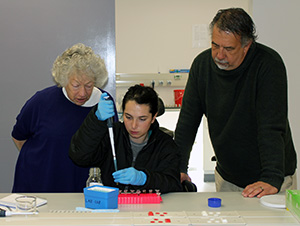Latest News Archive
Please select Category, Year, and then Month to display items
01 October 2019
|
Story Prof Francis Petersen
|
Photo Pixabay

During October, the national focus is on mental health. Mental Health Awareness Month also coincides with a time when our students prepare for the end of the year exams, making it a particularly valuable time for us to think about how we can continuously assist them during their time at university. The value of peer support and genuine care can never be overstressed; that is why I want to encourage our students to reach out to their support networks such as our Department of Student Counselling and Development, as we move towards the end of the year.
Mental health is an equally important matter for our staff. During this month, I want to encourage our staff to also take cognisance of their own well-being. There is a lot of wisdom in the old adage: Healthy body, healthy mind. Many of the initiatives of our Division of Organisational Development and Employee Wellness are focused on the value of physical activity and the negative impact that inactivity can have on one’s productivity and mental health. They also present regular lunch-hour sessions for our staff, where experts share information and practical tips for mental wellness. I want to encourage our staff to attend these sessions and to make use of the services the university has to offer in this regard. It is important to note that suffering from mental and anxiety disorders is not weaknesses and it is not always indicative of a deeper psychological issue; it is an illness and hence can be treated.
On 20 September 2019, a 21-member team was sent off on their run of 1 075 km to Stellenbosch to raise awareness for mental health. The run was organised by the Division of Organisational Development and Employee Wellness and the Faculty of Health Sciences. The team ran in relay format throughout the night and handed the baton of hope to Stellenbosch University on 25 September 2019. I admire and thank them not only for their commitment and stamina, but also for addressing this crucial matter in the public domain and for raising awareness in the many towns and communities along the way.
This is an excerpt from a message by Prof Francis Petersen.

Monkey research attracts international attention
2016-07-11

Prof Trudy Turner from the University of
Wisconsin-Milwaukee and Prof Paul Grobler
from the Department of Genetics at the
University of the Free State, together with one
of the students researching monkey genes.
Photo: Siobhan Canavan
For this year’s Summer School programme, Prof Paul Grobler, from the University of the Free State Department of Genetics focuses on research about the conflict between monkeys and humans in areas where monkeys are regarded as problem animals.
Global expert part of research
This year, Prof Grobler is hosting a group of students and lecturers from the United States of America (USA). The group includes Prof Trudy Turner from the University of Wisconsin-Milwaukee (UWM), a global expert on vervet monkeys. She has been working with the Department of Genetics at the UFS for the past fifteen years, and has also been appointed as an Affiliated Professor in the department.
“The Summer School programme is an opportunity for the American Primatology students to gain practical experience in Africa,” says Prof Grobler.
International interest in Summer School
This year’s Summer School programme involves four lecturers and nine students. The lecturers are from the University of Wisconsin-Milwaukee (UWM), the University of California, Los Angeles (UCLA), Boston University, and Central Washington University.
“We use the genetic information to determine
how monkeys historically infiltrated the
different areas in South Africa.”
This year’s focus is on the genetic structure of the monkeys in South Africa, and research that is being done on the differences and similarities in monkeys from different areas. “We use the genetic information to determine how monkeys historically infiltrated the different areas in South Africa,” says Prof Grobler.
Local nature reserve acting as host
The group will perform field work, including observing monkeys in the Soetdoring Nature Reserve, as well as laboratory work in the department, where they will be assisted by two laboratory technicians.
Two years ago, Prof Grobler and his department tested this idea on a smaller scale, and now they hope to make this a regular event.